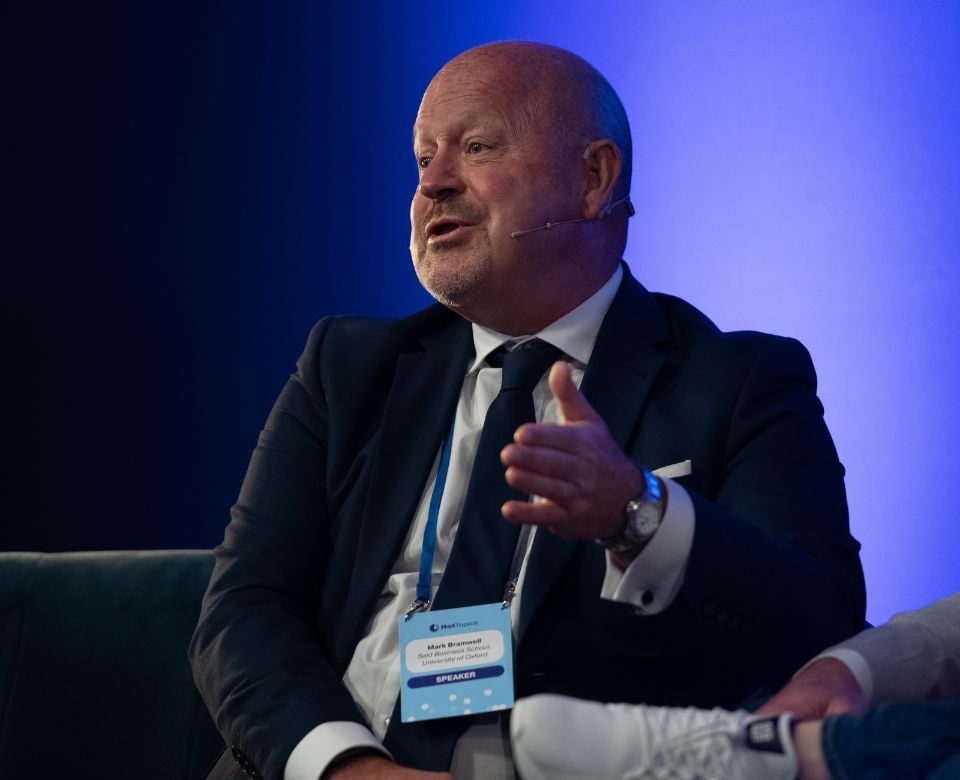
Navigating AI challenges, building security resilience, and embracing innovation
In partnership with
Joining us: Mark Bramwell, the CDIO of Saïd Business School, University of Oxford.
Doug Drinkwater, Editorial and Strategy Director at HotTopics, recently sat down with Mark Bramwell, Chief Digital and Information Officer (CDIO) at Saïd Business School, University of Oxford, to discuss how organisations like his are addressing complexity, leveraging artificial intelligence (AI), and planning for the future. Mark shared valuable insights into the current technological landscape within the higher education sector and the strategies employed to drive efficiency, innovation, and an enhanced experience for stakeholders.
Tackling complexity: Rationalising technology systems
Mark acknowledged the growing challenge of technology complexity within organisations, stating that it is increasingly diverse, pervasive, and difficult to navigate. At Saïd Business School, complexity is managed in two important ways:
- Application Portfolio Rationalisation: The school is reviewing the size and scope of its application portfolio to identify areas of overlap and duplication. This step is key to streamlining operations and ensuring that resources are optimally utilised.
- Supplier Consolidation: By reviewing the organisation’s supplier and partner base, the school aims to reduce the number of suppliers and focus on economies of scale. Creating strategic partnerships with fewer, larger, and higher-quality suppliers will allow the school to grow sustainably and effectively.
Unlocking AI’s potential across education and operations
Asked about creating efficiencies through AI, Mark emphasised the almost boundless opportunities AI presents within a higher education context. He noted that AI is transforming experiences for many key personas associated with the business school:
- Students: AI is streamlining processes such as admissions, onboarding, and wellbeing services.
- Faculty: By embedding AI in teaching methods, the school is leveraging automation to enhance efficiency and create deeper knowledge-sharing opportunities.
- Researchers: AI enables faster processing of large data sets, allowing researchers to more effectively analyse findings and generate insights.
- Professional services staff: Areas like HR, marketing, finance, and IT are benefiting from AI-driven automation, reducing repetitive administrative tasks and freeing up staff to focus on higher-value activities.
Ultimately, AI serves as a tool to improve workflows, enhance experiences, and amplify productivity across the institution.
The role of technology in enhancing experiences
Mark highlighted the crucial importance of delivering seamless and reliable technology services to both employees and customers. Features such as effortless laptop connections, flawless access to applications, and dependable Wi-Fi are now considered baseline requirements. Without these foundational elements, organisations risk losing confidence and trust among their stakeholders.
To build credibility, Mark’s approach involves cultivating strong relationships within the organisation and demonstrating how technology can be introduced and supported to enhance business services. This includes ensuring that all technological advancements are underpinned by secure, sustainable, and reliable systems. Mark underscored the importance of technology as a business enabler, not just a support function.
Priorities for the next 12 months
Mark reflected on the fast-paced nature of technological change, acknowledging that predicting the landscape beyond six months is increasingly difficult. However, some key priorities remain clear:
- Agility: Delivering faster, better, cost-effective solutions that drive new business capabilities.
- Safe innovation: Creating room for experimentation, while adopting a “fail quickly, scale fast” approach to ensure sustainable growth.
- Data leverage: Recognising that data is one of the largest assets in any organisation, second only to its people. Mark emphasised that AI, applications, and business intelligence are all dependent on the quality and management of data. Harnessing data effectively is pivotal to achieving organisational goals.
Want to learn more? Visit the People-First AI Hub today and explore our community filled with insights for staying ahead in the ever-changing world of technology.
SUBMIT A COMMENT
RELATED ARTICLES
Success isn’t metrics, it’s people: Leadership and life with Sarah Roberts
14 Jan 2026
Join the community
To join the HotTopics Community and gain access to our exclusive content, events and networking opportunities simply fill in the form below.

